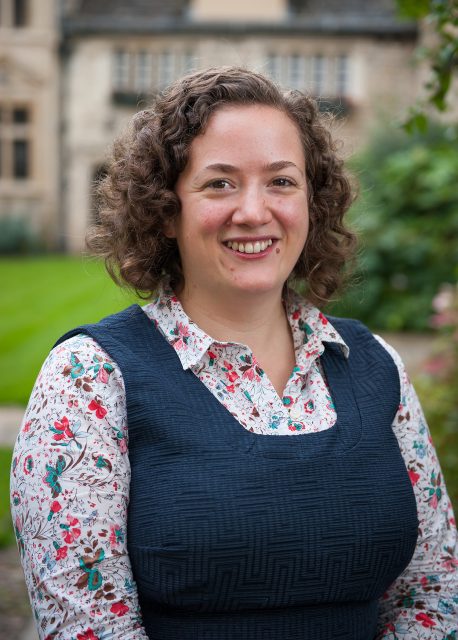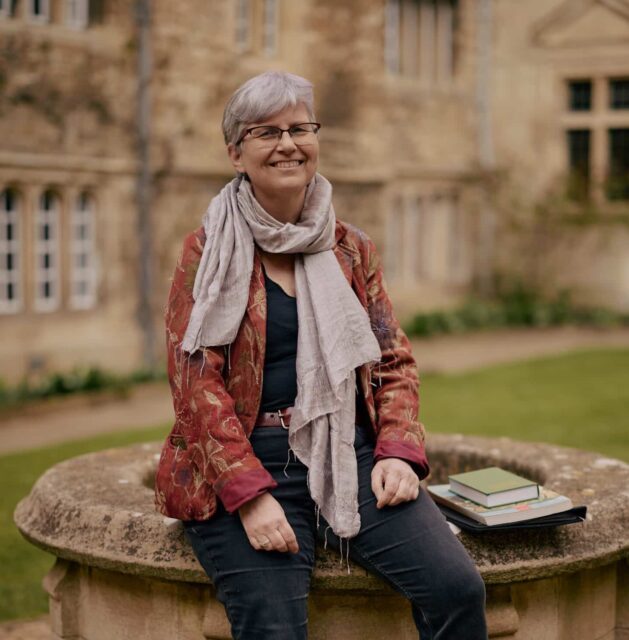German
undergraduates
Students of German at Teddy Hall benefit from an excellent team of academics whose fields of expertise stretch from the early medieval period to the present day. The undergraduate German course offers a wide range of choice. In the first year, we work on a set of texts and a film from the period 1890-1937, as well as a selection of poems ranging from the twelfth century to the 1970s. There are also weekly language and translation classes. From the second year, students continue with language work and can select from options which include contemporary linguistics, the history of the language, film, medieval, early modern and modern literature.
An annual translation project gives students the opportunity to work with writers and organisations, to hone their skills and even get into print. Previous workshops include translating prose with prizewinning visiting authors Ulrike Draesner and Yoko Tawada, and work on song texts with the Oxford Bach Soloists. In 2017 students contributed a new translation of Schiller’s ‘Ode to Joy’ to an anthology, The Idea of Europe: Enlightenment Perspectives.
It is also possible to study German as a beginner. This course requires no previous experience of German but must be taken jointly with another language that you have studied to A-level or equivalent. At Teddy Hall, German ab initio can be studied alongside either French or Russian.
When thinking of applying to study German at Oxford, you may find it useful to explore German texts. You can find some of our tutors’ recommendations below:
Germanlit.org contains short pieces about writers and texts, written by academics. For more specific recommendations, Marcel Beyer is a contemporary author who engages with the legacy of recent German past. An older generation of authors include Günter Grass and Christa Wolf. Rubble literature (Trümmerliteratur) of the immediate post-war period consists of often very short texts, and can be a good way in to reading in German.
If you enjoy unreliable or mysterious narrators, you may want to explore 19th century German novellas e.g. ETA Hoffmann’s The Sandman. You may also want to watch How to Spot a Liar in Literature, a talk from St Edmund Hall German tutor Dr Alex Lloyd.
If you enjoy literature through a historic lens, novels from the Weimar Republic, e.g. Erich Kästner, Irmgard Keun. Daniel Kehlmann is the most famous example of a contemporary author who sets novels in the past. Many recent German films are set in the Third Reich or GDR (Christian Petzold’s Barbara or Donnersmarck’s Das Leben der Anderen). Another good place to start is to read a short introduction to German history to get a sense of overview, e.g. Mary Fullbrook’s A Concise History of Germany.
Our Tutors

Alex
Lloyd
Fellow by Special Election in German
Dr Alex Lloyd is a Fellow by Special Election and a Lecturer in German and teaches language, translation, literature, and film. Her main research interests lie in cultural memory, depictions of children and childhood, and the relationship between literature and visual culture.

Henrike
Lähnemann
Professor of Medieval German Literature and Linguistics
Professor Henrike Lähnemann is Chair of Medieval German Literature and Linguistics at Oxford and teaches medieval German literature and history of the book. She is particularly interested in finding out how medieval nuns communicated, how manuscripts were produced, and how early printing presses worked.
Robin
Crawford
Stipendiary Lecturer in German
Robin Crawford is a Stipendiary Lecturer in German at St Edmund Hall, primarily teaching translation into English.
Subjects
UCAS course codes
German (R200)
French and German (RR12)
French and Beginners' German (R101)
German and Beginners' Czech (RRF7)
German and Czech (RR2P)
German and Beginners' Russian (RR27)
German and Russian (RR2Q)
German and Spanish (RR24)
German and Polish (R2R7)
Czech and Beginners' German (R702)
Russian and Beginners' German (R712)
Spanish and Beginners' German (R401)
English and German (QR32)
History and German (VR12)
Philosophy and German (VR52)
German and Linguistics (RQ21)
See syllabus and entry requirements for further information.